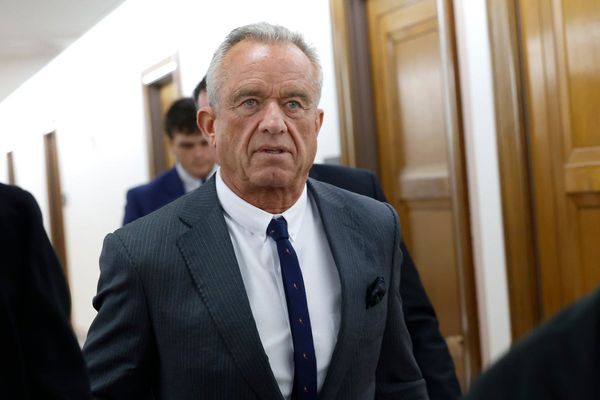
It's not easy to find truly effective financial advice. Sure, there are more than enough voices online and on bookshelves that can give you standard tips for how to sort out your money. But will it actually work for you? After all, everyone's relationship with money is different based on their diverse lived experiences.
This is the gospel according to Tori Dunlap, the blogger and finance influencer who founded finance website HerFirst100K. She's made it her mission to make financial education more accessible for a wide range of people, from millennials to marginalized groups.
"We make content for girls, gays, and theys," Dunlap joked when she spoke with TheStreet. Her savings and investment tips have helped her followers, about 95% of which identify as female, become more financially vocal and empowered. She categorizes HerFirst100k as a feminist company that uses money as a medium to improve their quality of life.
Dunlap didn't have any previous experience in the finance industry. She graduated in 2016 with a degree in organizational communication and theater, which she describes as "a marketing degree with less math". If you told her five years ago that she would be working in the finance industry, she told TheStreet, she would have "laughed in your face."
View the original article to see embedded media.
Working for Financial Equality
Dunlap grew up with a very thorough education when it came to money, with parents that made talking about money a very normal practice. She tells TheStreet that it was so commonplace she mistakenly assumed everyone knew as much as she did about managing money. When he friends starting coming to her for financial advice, she started to understand how lucky she was.
She cites the 2016 presidential election as her galvanizing moment that led to the creation of HerFirst100K. For a lot of Americans, the need for emergency funds for things like reproductive services or relocating to a state that maintains marriage equality became imperative. She says she realized that "when I had money, I had choices," and that the same went for everyone else.
The atmosphere of uncertainty made her consider the responsibility that came along with her financial privilege. "We don't have any sort of equality until we have financial equality," she says, pointing out the undue financial burdens on women, LGBTQ people, people of color, and disabled people. When she looked at the landscape of financial education, she noticed there wasn't enough conversation happening about these inequities.
Her First 100K
In 2016, Dunlap started as blog detailing her goal to save $100K before her 25th birthday. Spoiler alert: she made her goal. To celebrate, she took herself on a vacation to Italy--and that's when Good Morning America came calling. Three weeks later, Dunlap quit her job to pursue what she calls her life's work.
Today, Her First 100K is made up of fifteen team members all across the globe. The website has almost 4 million followers and a podcast, and Dunlap has a new book called Financial Feminist coming out in December. Dunlap says that writing and reading the audiobook felt like she was trying out a standup comedy routine and that she wants it to feel like getting financial tips from your best friend or your big sister--instead of a friend of your dad's named Steve.
What sets Dunlap's approach apart, she feels, is a conversation about money that exists without shame or judgement. If someone is making you feel shame, then their technique is not working. Instead, she approaches the topic with empathy. She takes account for real-world ways that sexism, racism, homophobia, ableism, and other forms of systemic oppression affect someone's wallet.
In the broadest example, Dunlap points to the differences between men's and women's finances. Women typically live longer than men, but on average are paid less. Taxes on medical necessities (also known as the Pink Tax or Tampon Tax) account for small costs that add up over time. Many women may also have to spend more on travel to prioritize safety rather than using more affordable public transportation services.
"We cannot talk about money and not talk about policy change because that’s honestly where the majority of the true change is going to happen in passing laws around paid family leave, abortion access[…] There are so many aspects of money that are political," Dunlap said.
The Future is Feminist (Financing)
Dunlap says that she and her team are seeing a massive shift in how we talk about money as a society. Their goal, she tells TheStreet, is to stay at the forefront of those conversations. With regards to her platforms, she says, "If I get you to do anything, let it be to talk about money."
Dunlap says her belief--as well as her company's-- is that not talking about money is a tool to "keep women and other marginalized people underpaid and overworked and not talking about money leads to shame. We use money for literally everything we do in our lives."
When it comes to her influence, Dunlap is delighted that she's reached a place where followers recognize her on the street. What particularly tickles her is when she's approached by straight men, often guys who found Tori's content through a partner. She loves it because, as she says, "we need men in this conversation" to understand and to be allies.
"There are so many men I love in my life, I love my boyfriend, I love my dad, I love Barack Obama," she laughs. "We need men voicing what, unfortunately, other people won't listen to when we say it."







